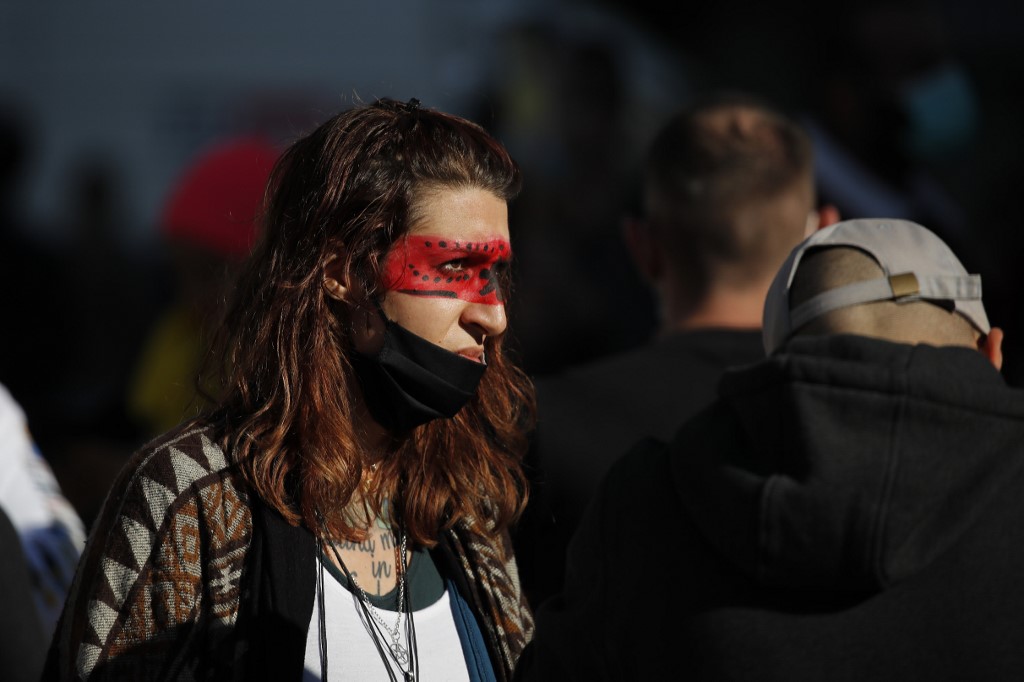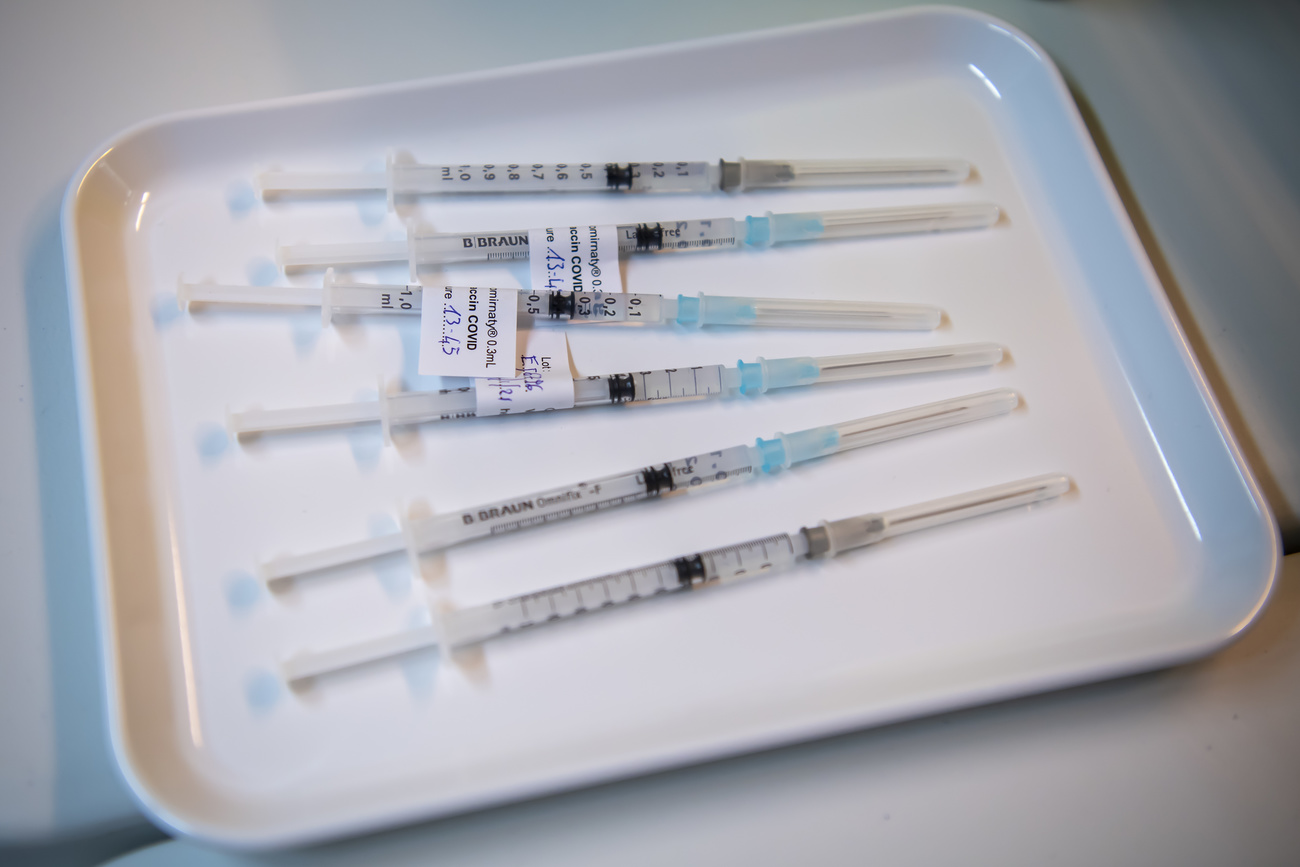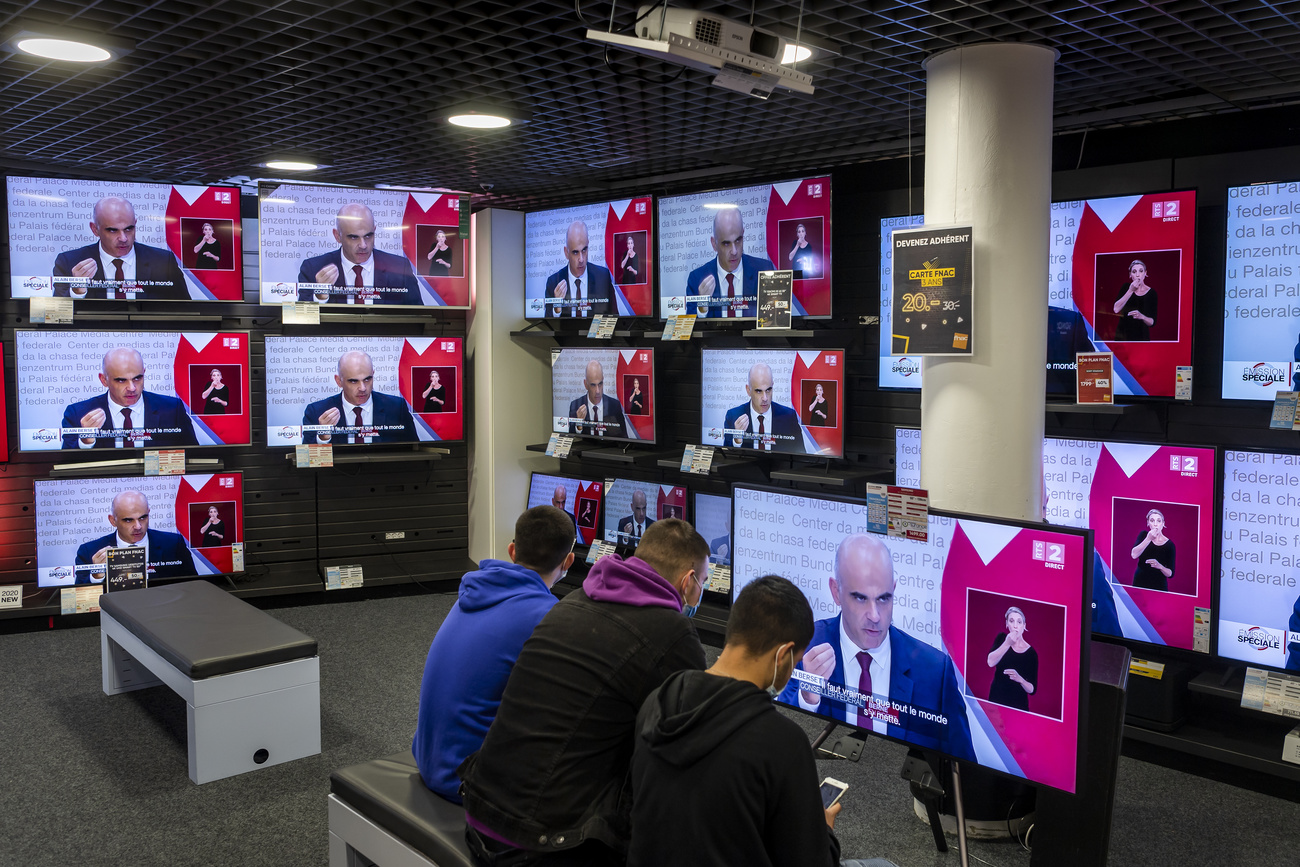Are the latest Swiss measures enough to fight the second Covid wave?

Half of the 176,177 cases of Covid-19 registered since the start of the pandemic in the Alpine nation have arisen since mid-October. How do the latest measures to fight the virus compare to policies in other hard-hit countries?
Last week alone, the number of new cases of the coronavirus doubled in Switzerland, topping 9,000 new daily infections on Thursday and Friday. Over the past 72 hours there were 21,926 new cases, the Federal Office of Public Health (FOPH) reported on MondayExternal link.
With more tests happening now than in the first wave, the total number of cases is higher – but so is the rate of positive test results.
The number of patients hospitalised is also increasing rapidly and has already reached the peak seen during the first wave in the spring. Last week the total was 1,100 – roughly double the number from a week earlier (560). Over the past 72 hours, 497 new patients were admitted to hospital.
Deaths have also skyrocketed, from 54 to 160 in the space of a week. Ninety-three people died over the weekend, taking the total number of Covid-19 related deaths since the start of the pandemic to 2,130.
An explosion within a three-week period
At the beginning of October, the situation in Switzerland was less serious than in many other countries. It was barely reaching 60 cases per 100,000 inhabitants over a 14-day period –the cut-off used until last week by the government to put countries on a “risk list”, which meant travellers from these places had to quarantine upon arrival.
But very quickly the picture began to deteriorate. The curve of Covid cases took off and became nearly vertical. According to the website Our World in DataExternal link, cases in Switzerland increased by 700%, with just a handful of countries, including Belgium, the Czech Republic and Slovenia, experiencing worse incidences.
At more than 1,060 cases per 100,000 inhabitants over a 14-day period (figure as of November 2), Switzerland is now one of the hardest-hit countries in the world. The contrast with its neighbours is stark: cases are five times higher than in Germany, and two times higher than in Austria and Italy. As of November 2, France registered 771 cases per 100,000 inhabitants, data from the European Centre for Disease Prevention and ControlExternal link shows.
Swiss cantons among worst-affected European regions
A comparative analysis by Swiss public television RTSExternal link reveals seven cantons are among the 30 worst-affected regions in Europe when it comes to new cases. Canton Valais is second only to the Belgian region of Wallonia; Geneva is in 6th place and Fribourg in 11th.

More
Coronavirus: the latest numbers
For now, the increase in deaths is less rapid in Switzerland than in the countries mentioned above. In a one-month period new deaths per 100,000 inhabitants grew by 1.4%, which is lower than the European average (+1.6%) and those topping the chart – the Czech Republic (+11%) and Armenia and Belgium (both 6%).
Will the new restrictions be enough?
Since the end of the lockdown before the summer, the federal government has opted for less strict measures to fight the pandemic than other European countries, as the “stringency index” of the University of OxfordExternal link shows.
The cantons, which under the Swiss federal system are responsible for health matters, have opted for different measures based on the local situation. To combat the second wave, some have gone further than the federal government, which announced a first set of new rules on October 18, including making masks mandatory in all indoor public spaces.
But the overall public health situation only deteriorated in the ten days following that announcement, according to an analysis by RTS. The federal authorities therefore unveiled a second set of measures last week, extending the mask-wearing rule, limiting public and private gatherings, and getting all bars and restaurants to close at 11pm.
The government also decided to deploy rapid antigen tests in a bid to significantly ramp up the testing rate, which until now has been among the lowest per capita.
Semi-confinement
But some cantons, like Jura, Valais, Neuchâtel and Fribourg, have introduced tighter measures. Canton Geneva has so far gone the furthest, imposing a semi-confinement from 7pm on November 2. Bars, restaurants and non-essential shops will be closed; schools will remain open.
But while the impact of these measures won’t be known for at least a couple of weeks, they are moderate compared to the more drastic steps taken by neighbouring countries in recent days, including a return to national lockdown and the imposition of curfews.
With hospitalisations and the number of patients in intensive care doubling each week, Martin Ackermann, the head of the Swiss Covid-19 national scientific taskforce, argued the measures introduced on October 18 “have not really helped so much.”
However, the interior minister responsible for health, Alain Berset, has defended the overall strategy of having different measures across cantons. He also rejected the notion that the government has reacted too late, telling the newspaper Neue Zürcher ZeitungExternal link: “The scientists don’t govern Switzerland.”
In an interview on Sunday, Berset said Switzerland was not introducing another national lockdown as without the support of the population the measures were useless.
“So we’re trying not to ban everything, but to appeal to people’s sense of responsibility,” he told Le Matin Dimanche.

More
Coronavirus: the situation in Switzerland
Adapted from French by Geraldine Wong Sak Hoi

In compliance with the JTI standards
More: SWI swissinfo.ch certified by the Journalism Trust Initiative













Join the conversation!